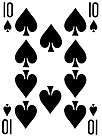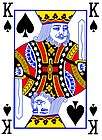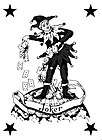sei
English
Basque
| < 5 | 6 | 7 > |
|---|---|---|
| Cardinal : sei Ordinal : seigarren | ||
Pronunciation
Audio (file)
Corsican
Fala
Etymology
From Old Portuguese seu, from Latin suus (“his, her, its”), from Proto-Indo-European *swoyos.
Pronoun
sei (plural seis, feminine sua, feminine plural suas)
- third-person singular possessive pronoun (his, her, its)
- 2000, Domingo Frades Gaspar, Vamus a falal: Notas pâ coñocel y platical en nosa fala, Editora regional da Extremadura, Theme I, Chapter 1: Lengua Española:
- A grandeda da lengua española é indiscotibli, i sei estudio, utilización defensa debin sel algo consostancial a nos, […]
- The greatness of the Spanish language is unquestionable, and its study, use and defense must be something consubstantial to us, […]
-
- third-person plural possessive pronoun (their)
- 2000, Domingo Frades Gaspar, Vamus a falal: Notas pâ coñocel y platical en nosa fala, Editora regional da Extremadura, Theme I, Chapter 1: Lengua Española:
- En esta época en que otras lenguas de España son recuñucias por tos cumu uficiais en sei territoriu […]
- In this time when other languages of Spain are recognised by everyone as official in their territory […]
-
Finnish
Etymology
Borrowed from Norwegian sei (“saithe”), via use in the 1950s and '60s on frozen fish packages of Norwegian origin.
Pronunciation
- IPA(key): /ˈsei̯/, [ˈs̠e̞i̯]
- Rhymes: -ei
- Hyphenation: sei
Declension
| Inflection of sei (Kotus type 18/maa, no gradation) | |||
|---|---|---|---|
| nominative | sei | seit | |
| genitive | sein | seiden seitten | |
| partitive | seitä | seitä | |
| illative | seihin | seihin | |
| singular | plural | ||
| nominative | sei | seit | |
| accusative | nom. | sei | seit |
| gen. | sein | ||
| genitive | sein | seiden seitten | |
| partitive | seitä | seitä | |
| inessive | seissä | seissä | |
| elative | seistä | seistä | |
| illative | seihin | seihin | |
| adessive | seillä | seillä | |
| ablative | seiltä | seiltä | |
| allative | seille | seille | |
| essive | seinä | seinä | |
| translative | seiksi | seiksi | |
| instructive | — | sein | |
| abessive | seittä | seittä | |
| comitative | — | seineen | |
Synonyms
Derived terms
- pakastesei
Galician
German
Pronunciation
- IPA(key): /zaɪ̯/
Audio (file)
Verb
sei
- First-person singular subjunctive I of sein.
- 1788: Johann Wolfgang von Goethe, Egmont (English translation)
- Meinst du, ich sei ein Kind, oder wahnsinnig?
- Thinkest thou I am a child, or frantic?
- Meinst du, ich sei ein Kind, oder wahnsinnig?
- 1788: Johann Wolfgang von Goethe, Egmont (English translation)
- Third-person singular subjunctive I of sein.
- 1788: Johann Wolfgang von Goethe, Egmont
- Er sieht oft aus, als wenn er in der völligen Überzeugung lebe, er sei Herr, und wolle es uns nur aus Gefälligkeit nicht fühlen lassen, [...]
- He carries himself as if he felt he were the master here, and were withheld by courtesy alone from making us feel his supremacy; [...]
- Er sieht oft aus, als wenn er in der völligen Überzeugung lebe, er sei Herr, und wolle es uns nur aus Gefälligkeit nicht fühlen lassen, [...]
- 1788: Johann Wolfgang von Goethe, Egmont
- Imperative singular of sein.
- 1788: Johann Wolfgang von Goethe, Egmont
- Geh deines Pfads, und sei ruhig.
- Go your way and be quiet.
- Geh deines Pfads, und sei ruhig.
- 1788: Johann Wolfgang von Goethe, Egmont
German Low German
Alternative forms
Pronunciation
- IPA(key): /zɛɪ̯/, /zaɪ̯/
Pronoun
sei
- (in some dialects, including, Mecklenburgisch, Western Pomeranian and Low Prussian, personal) Alternative form of se (she - third person singular feminine pronoun)
- (Low Prussian) Sei ös Anke.
- She is Anke (Annie).
- (Low Prussian) Sei ös Anke.
Pronoun
sei
- (in some dialects, including, Mecklenburgisch, Western Pomeranian and Low Prussian, personal) Alternative form of se (they - third person plural pronoun)
Gothic
Romanization
sei
- Romanization of 𐍃𐌴𐌹
Italian
| < 5 | 6 | 7 > |
|---|---|---|
| Cardinal : sei Ordinal : sesto Multiplier : sestuplo Fractional : sesto | ||
Etymology
From Latin sex, from Proto-Indo-European *swéḱs.
Pronunciation
- IPA(key): /ˈsɛi/, [ˈs̪ɛi̯]
- Hyphenation: sèi
Noun
sei m (invariable)
sei f pl
- (following the article le) six o'clock (a.m. or p.m.)
- Sono le sei.
- It's six o'clock.
Related terms
Middle English
Etymology
From Old English sǣ.
Norwegian Bokmål
Pronunciation
- IPA(key): /sæj/
- Rhymes: -æj
Norwegian Nynorsk
Pronunciation
- IPA(key): /sæɪ/
Noun
sei m (definite singular seien, indefinite plural seiar, definite plural seiane)
- pollock (Pollachius virens)
Derived terms
Etymology 2
Pennsylvania German
Inflection
| masculine | feminine | neuter | plural | |
|---|---|---|---|---|
| nominative and accusative |
sei | sei | sei | sei |
| dative | seim | seinre | seim | seine |
Usage notes
- Also used as the less common auxiliary verb to form the past tense along with the past participle.
Conjugation
Conjugation of sei
| infinitive | sei | |
|---|---|---|
| past participle | iss gewest | |
| future tense | waerd sei | |
| subjunctive | ||
| 1st person singular | waer | |
| 2nd person singular | waerscht | |
| 3rd person singular | waer | |
| 1st person plural | waere | |
| 2nd person plural | waeret | |
| 3rd person plural | waere | |
| present tense | ||
| 1st person singular | bin | |
| 2nd person singular | bischt | |
| 3rd person singular | iss | |
| 1st person plural | sin | |
| 2nd person plural | seid | |
| 3rd person plural | sin | |
| imperative | sei | |
References
- Earl C. Haag, Pennsylvania German Reader and Grammar (2010)
Portuguese
Alternative forms
- sey (obsolete)
Pronunciation
- (Brazil) IPA(key): /sej/
Verb
sei
- first-person singular (eu) present indicative of saber
- 2005, J. K. Rowling, Harry Potter e o Enigma do Príncipe [Harry Potter and the Half-Blood Prince] (Harry Potter; 6), Rio de Janeiro: Rocco, →ISBN, page 375:
- Confiem em mim. Sei o que estou fazendo...
- Trust me. I know what I'm doing...
-
Scots
This article is issued from
Wiktionary.
The text is licensed under Creative
Commons - Attribution - Sharealike.
Additional terms may apply for the media files.






